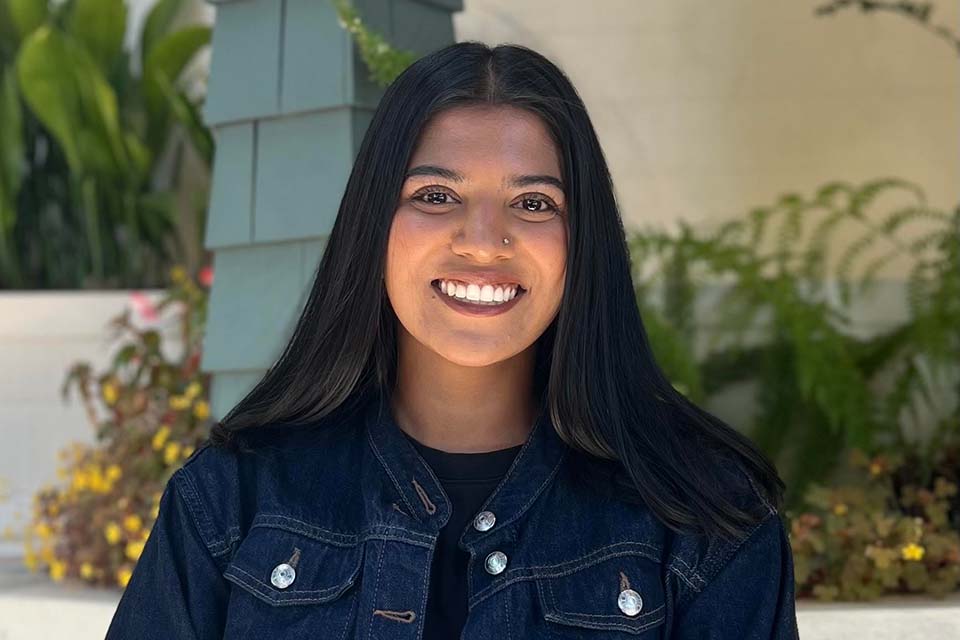Explorations and Connections: An Interview with Aparna Dutta, MS'22 in Computational Linguistics

July 31, 2025
Abigail Arnold | Graduate School of Arts and Sciences
Aparna Dutta, MS’22, was drawn to Brandeis because of the way its Computational Linguistics program brought together different academic backgrounds and post-graduate goals. After majoring in linguistics with minors in computer science and psychology as an undergraduate, she wanted to do more graduate work before going into industry. “I was attracted to Brandeis because it focuses on industry but not solely,” she said. She liked how the program had both research-focused and industry-focused tracks, as well as networking opportunities and colloquia with professionals in the field. “It also brings in people from both computer science and linguistics backgrounds and isn’t just a computer science program like some at other institutions,” she said. “Since I have a linguistics background, it was fun to still be in that world and be a course assistant for related classes.”
Since Dutta started the program in 2020, she spent her first year learning online. However, her cohort still became very connected, especially when they came together on campus for the second year of the program. “We built a great bond as a cohort,” she said. “We would work together on projects in each other’s apartments and the library. We wound up taking a ski trip together with almost everyone from the program! Since graduating, it’s also been fun to stay in touch and see what everyone is doing.” Dutta also enjoyed the chance to intern with Spotify twice during her time at Brandeis, opportunities she found through the program’s industry receptions. She met both her eventual mentor (also a Computational Linguistics master’s alum) and her eventual manager at Brandeis when they visited to give talks in the program.
At Brandeis, Dutta worked closely with Professor Constantine Lignos, with whom she took two classes. She wrote a paper about code mixing of Bengali and English on social media for one of his courses, and it was later accepted to the Language Resources and Evaluation (LREC) conference in Marseilles, which she attended alongside Lignos and several classmates as her first conference experience. “Since he has industry experience, he also helped me with job and internship searching,” she said, “including negotiating multiple offers and professional norms.”
Right after graduation, Dutta joined Spotify full time as a machine learning engineer working on voice and personalization, as well as safety models. She was with Spotify until December of 2024, when she joined OpenAI. There, she does human-AI interaction research, supporting human data collection when the company trains or evaluates AI models. Dutta says that everything she learned in the computational linguistics program has been important to her career. “For my first job, I more directly applied things I learned in our technical classes, like Natural Language Processing,” she said. “Now, it’s more having an understanding of the AI field, where bias comes in, and the ethics of AI, which we had colloquia on. Our class on annotation was also super important; I don’t think a lot of programs have a specific class for that, but it’s essentially what my whole team does.”
When asked about her advice for others who want to work in the field, Dutta said, “Experiment and talk to people as much as you can! When I started, I didn’t know exactly what I wanted to do, and you don’t need to be an expert right away. Instead, talk with people working on projects and express your interest. It’s also important to be a collegial person. You don’t need to be the most technically skilled person in the field to do well; it’s a small community, and the more you build relationships, the more you will have chances to do what you want.”






